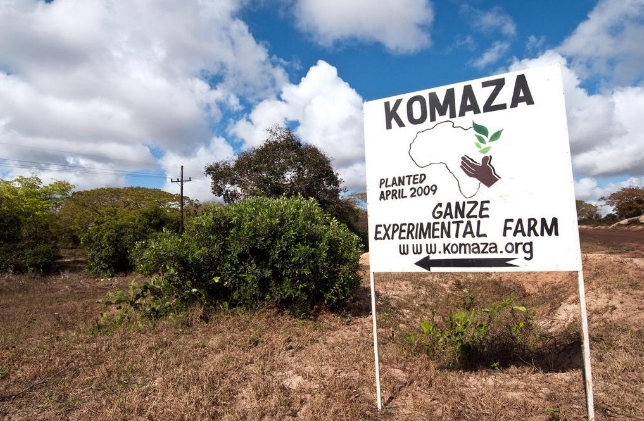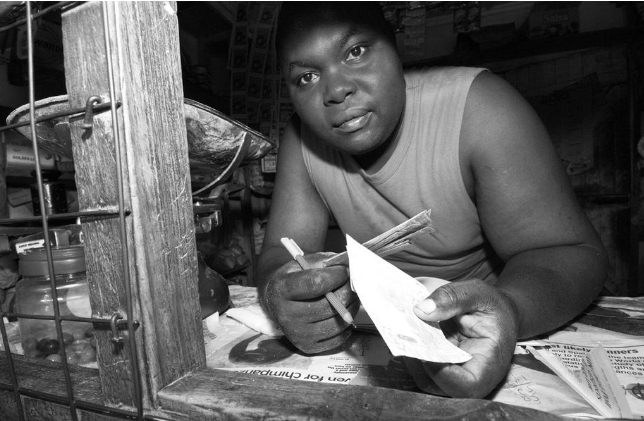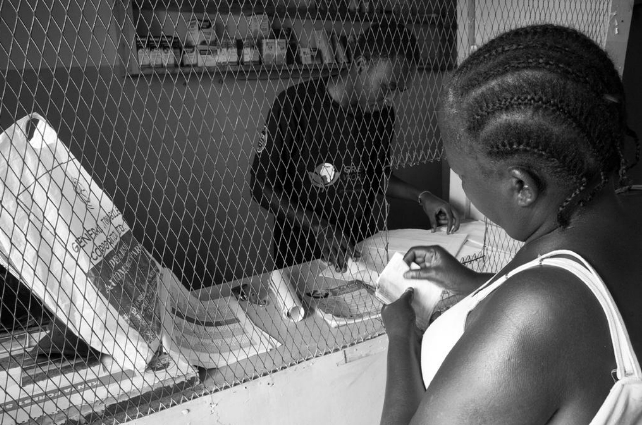Jonathan Kalan is a photojournalist, social entrepreneur, and founder of PuraVidaPhotos, a site hosting his photography portfolio. His most recent endeavor is The (BoP) Project (Base of the Pyramid) which aims to “discover, document, and share stories of remarkable social entrepreneurs”. Considering that he is in his early twenties and has already travelled to over 30 countries, Jonathan is proving that photojournalism is still an actively pursued profession.
We got in touch with him, and found him working in Tanzania. Jonathan kindly answered a few of our questions (see below), and welcomed public feedback.
1. Your currently on a mission to explore and document stories of entrepreneurs making social change in Tanzania. Could you tell us more about your views on social entrepeneurship?
While at university, I spent a year studying and working in the rural development space in India. It was there I discovered the power of social entrepreneurship- specifically market-based and/or sustainable solutions focusing on those at the Base of the Economic Pyramid (BoP). What started with an interest in the renewable energy sector, and organizations that were helping people in rural areas develop small scale renewable energy solutions that both provided clean energy and allowed opportunities for income generation, soon blossomed into a deep interest and appreciation for a new approach for development- social enterprises. I came into contact with organizations like Ashoka and Acumen Fund, who were encouraging, funding and tapping into the power of young social entrepreneurs and enterprises that were taking new paths in development.
I believe there is no stronger force for development than capitalism- people are incentivized by profit- and the great shift we are seeing now, the social entrepreneurship movement, is hoping to harness the power of business and capitalism and align it with social objectives. It can- and is- being done. From selling clean energy, to clean drinking water, to entire businesses built on employing and empowering those at the BoP as a crucial component to their value chain, there are many ways in which enterprises can be profitable, or at least sustainable, and provide a social benefit to society.
We have noticed for years that the traditional approaches to aid aren’t working. Billions of dollars have been poured into developing nations, with not nearly enough to show for it. Most nonprofits have little accountability, and while they do accomplish great things, in the end many programs fail, are left half complete, or are not followed up upon due to lack of funding. By taking an entrepreneurial approach, and applying business concept to the social development sector, social entrepreneurs are empowering individuals, communities, and countries in a sustainable fashion, with greater accountability, focus on customers or clients (not as much on donors & reports), and a sincere effort to change the aid model from simply giving things to the poor to giving the poor opportunities for advancement- economic and social.
2. A lot of your work is focuses on otherwise undocumented interactions. What are you finding out about Tanzanian social entrepeneurs?
I’m trying to discover approaches that are truly innovative, inspiring, and will have something to teach others. I feel the social entrepreneurship field is just finally hitting a tipping point, at least in the United States, where these social entrepreneurs are just finally getting in the development spotlight.
In Tanzania, I am still digging very deep- from what I’ve seen, the term “social entrepreneur” isn’t necessarily a common phrase in East Africa beyond the development circles and the expat crowd. I have not yet met very many tanzanians who are familiar with “social entrepreneurs”- many simply just point to people who have started nonprofits. In Tanzania, to be quite honest, I have not had much success in finding the type of homegrown social entrepreneurs that I have been seeking for The BoP Project- individuals who have started for-profit or sustainable enterprises that are serving a social purpose.
There is a reason for this, however. I think the trouble may be, since the term hasn’t necessarily caught on here, that entrepreneurs are not yet identifying themselves as such, making it difficult to locate these stories.
For example, I am working with an incredible Tanzanian student who just graduated Form IV, and already runs his own organization that helps street children in his neighborhood with english lessons, school fees, school supplies, and much more. He started a small business assembling and selling counter books, and is now trying to start a t-shirt business, photo booth, and more- all to support the mission of his organization, give youth employment, and make the organization financially sustainable. He is definitely a social entrepreneur in my mind- yet he simply sees what he is doing as a way to continue his work serving the community.
From what I’ve seen, there are multiple areas for aspiring social entrepreneurs (those interested in establishing for-profit social businesses) in Tanzania. The renewable energy sector (small scale solar products, like those from Barefoot Power, SunnyMoney, and D.Light), is the first, since in rural areas these small solutions are constantly in very high demand. The second is aggregation and distribution of agricultural produce. I see so many people (mostly women) selling their crops on the side of the road all across Tanzania- for hardly anything. I can only imagine how much food goes unsold or wasted since it cannot meet the market in time. There is a huge opportunity to tap into this, network, by offering a fair price and guaranteed market by creating a comprehensive collection and distribution network for produce. I’ve seen similar things emerging in Rwanda, however of course Rwanda is a much smaller country.

3. We’ve been discussing photojournalism as well as other forms of media in Tanzania. From your experience, what forms do you think work best in Tanzania?
In Tanzania, as anywhere else, people enjoy media in any form. It’s a more engaging, entertaining way of storytelling. In a country where there is only 1.6% internet penetration, the primary media people see are photos (in newspapers and magazines), and TV/videos. Media on mobile phones is definitely emerging, and from what I see in 2-3 years that will be the primary way to engage people with media. I don’t necessarily think one form specifically works best, however if you want to reach the maximum amount of people, design your media/story to go mobile.

4. Have you found public and private media houses supportive of the Tanzanian population at the BoP?
I haven’t had very much experience with this yet- I have not seen any large public or private media houses working with the BoP. I’d be interested to hear readers feedback on this though!

5. You’ve shared your photos with tons more blogs. What are your thoughts on intellectual property in an age where everyone seems to be able to read and write [data] freely?
It’s getting extremely difficult for photographers, that’s for sure. In an age where everyone has a camera phone, or a decent camera, everyone can become an eyewitness reporter, photographer, and more- and they are willing to give their images away for free. The (BoP) Project gives most of the images away for free, since I’m more focused on getting these stories out to the world than making money- but that doesn’t mean I’m giving up the rights to them. People must continue to be aware of intellectual property rights, and respect artists time, talent, and investment that goes into their creation, whether it’s photographs, text, or music. I think the fact that so many people have so much of a broader range of access to media is incredible, yet if people cannot be paid, in some form, for their work, how can they continue to produce it? Proper crediting of artists, and asking for their permission to use their property, is still extremely important. However, with so much data being replicated so freely, new models of payment for IP are bound to emerge. If not, the industries that are built on it will surely suffer, as we’ve seen with the music industry.

We thank Jonathan Kalan for his time here at Vijana FM, and look forward to hearing more from him with comments from you, the readers.
Jonathan’s contact is jonathankalan (at) gmail (dot) com, or mobile number +255 686 899 885.
Related links:




Social entrepreneurship is no different from any other business, in terms of its aim for profitability. What constitutes profit may be different (money, well-being, happiness, etc.) but the ingenuity is the same.
Therefore, how are you encouraging the “social” in “social business”?
Hi Jack,
Thanks for your comment- You’re completely right, in that there should be no difference between a regular enterprise and a “social” enterprise, in regards to its aim to achieve profits.
You’re also right in that profits can be measured in many ways, and social enterprises commonly make decisions in which the “social” profit has a direct impact on the decisions they make regarding “financial” profits. Social Enterprises will often forgo a greater “financial” profit, if they see the “social” benefits or profits being higher. It’s similar to the notion of opportunity cost. Perhaps an enterprise has the opportunity to gain more financial profits if they raise the price of their product, however if they did so they would forgo selling to their customer base of poor people who could afford, and perhaps benefit from, their product at the base price. So their opportunity cost is higher financial profits vs. higher social benefit (or profit).
It’s a tough decision in many cases, however through the BoP Project I’m hoping to encourage entrepreneurs and others to see that it is possible to accomplish both missions. You CAN still be a profitable company that has a social profit as well. It sometimes takes sacrificing financial profits, and some are unwilling to do that. However, if you are willing to do that, there are many business cases, approaches, and models which can help guide the way, which is what I am trying to demonstrate!
Lastly, perhaps “profit” may be a strong word in the social enterprise space. Many social enterprises I encounter are simply moving towards the notion of “sustainable”, meaning they aren’t reaping huge financial profits, but they are simple able to continue operations, pay employees, continue serving their customers and benefitting society, and have enough to expand when necessary
Best,
Jonathan
I would also imagine that the stories you share inspire others to continue in similar paths. That is, you’re providing success stories and showcasing lessons learned.
I think your project would be strengthened if you showcased longitudinal stories. It would be neat to see a social entrepreneur in Tanzania when he begins his/her project and then to continue seeing them in action 2 weeks, a month, 6 months down the line.
With this, however, you would need to provide technical information about the success (or challenges) of the business. Such documentation, I believe, would properly instigate the “serial” effect in inspiring others to follow.
I have another question: Do you think social entrepreneurs understand a part of their cultures that “financial” entrepreneurs may not understand?